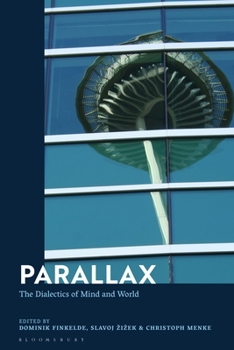Parallax: The Dialectics of Mind and World
Select Format
Select Condition 
Book Overview
Parallax, or the change in the position of an object viewed along two different lines of sight and more precisely, the assumption that this adjustment is not only due to a change of focus, but a change in that object's ontological status has been a key philosophical concept throughout history.
Building upon Slavoj Zizek's The Parallax View, this volume shows how parallax is used as a figure of thought that proves how the incompatibility between the physical and the theoretical touches not only upon the ontological, but also politics and aesthetics. With articles written by internationally renowned philosophers such as Frank Ruda, Graham Harman, Paul Livingston and Zizek himself, this book shows how modes of parallax remain in numerous modern theoretical disciplines, such as the Marxian parallax in the critique of political economy and politics; and the Hegelian parallax in the concept of the work of art, while also being important to debates surrounding speculative realism and dialectical materialism. Spanning philosophy, parallax is then a rich and fruitful concept that can illuminate the studies of those working in epistemology, ontology, German Idealism, political philosophy and critical theory.Format:Paperback
Language:English
ISBN:1350253375
ISBN13:9781350253377
Release Date:February 2023
Publisher:Bloomsbury Academic
Length:272 Pages
Weight:0.85 lbs.
Dimensions:0.6" x 6.1" x 9.2"
Related Subjects
PhilosophyCustomer Reviews
0 rating





